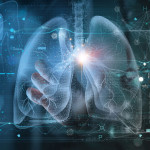Smoking cigarettes is a bad habit for anyone, but it’s especially harmful to people living with HIV. Smoking increases your risks of health problems such as heart disease, cancer, stroke and lung disease.
But let’s face it—quitting is hard! Some smokers successfully quit cold turkey, but most people try quitting several times before becoming smoke-free. Relapse is common because of the physical and psychological withdrawal. There’s no “right” way to quit, but here are some tips and tools that can offer you the best chance at success:
Get Help. Call 800.QUIT.NOW (800.784.8669) to reach the smoking quitline in your state. It’s free, and they’ll help you work out a quit plan. You can also visit http://smokefree.gov for more tools and advice on how to quit.
Set a Quit Date. There’s no such thing as an ideal quit day. Each month carries with it various levels of stress, work deadlines, travel, or something else that you can rationalize as not being the right time. At that rate, you’ll always find a reason to put off quitting. So bite the bullet and set a date. When the times comes, be sure to get rid of all the cigarettes and ashtrays in your home, car and at work.
Most people smoke until their quit day and then stop. Others smoke fewer cigarettes each day for a week or two before their quit day, gradually reducing the amount of nicotine in their bodies. Although cutting down to reduce withdrawal symptoms seems like a good idea, it can be hard to do.
Beware of Triggers. Identify your triggers—those times when you usually light up. Triggers may include watching TV, talking on the phone, relaxing after a meal or sex, getting in or out of your car, coming out of the subway, drinking coffee or alcohol, and many others. Although individual smokers’ triggers vary, identifying them will help you prepare for and recognize them once you’ve quit so that you don’t fall back into old patterns.
Eat Healthy Foods and Exercise. Weight gain is common after quitting cigarettes, but it’s not inevitable. If you find yourself eating more once you quit smoking, focus on healthy foods that are low in calories and high in nutritional value. Exercise will also help keep the pounds off, and it will be much easier as your lungs heal.
Find Support. Setting up a support system can be very useful in helping you quit. Tell family, friends and colleagues that you’re going to quit and ask for their support. Finding someone else who’s going through the process of quitting can also be helpful—a buddy system of sorts.
Nicotine Anonymous holds regular meetings in many places. Nicotine Anonymous applies the 12-step program of Alcoholics Anonymous to the addiction of smoking. Call the group’s toll-free number at 877.879.6422 or visit nicotine-anonymous.org to find a meeting near you.
Consider Nicotine Replacement Therapy. Since nicotine causes physical dependence, you’re likely to experience withdrawal symptoms for a few days after you quit. Nicotine replacement therapy—gums, patches, nasal sprays, inhalers and lozenges—puts nicotine into your system, but without the other harmful chemicals in cigarettes. Nicotine replacement therapy helps relieve some of the physical withdrawal symptoms so that you can focus on the psychological aspects of quitting. It’s important not to continue to smoke while using nicotine replacement therapies. You’ll wind up with too much nicotine in your body—not a good thing.
Reduce Cravings with Medication. Zyban (bupropion) and Chantix (varenicline) are oral prescription medications approved by the FDA to reduce nicotine cravings. Zyban, also known as Wellbutrin, is an antidepressant. Chantix has been shown to be more effective for smoking cessation than Zyban, but it has considerable side effects, including strange dreams, hallucinations, agitation, depression and even suicidal thoughts or actions. Not everyone experiences these side effects, but people with a history of mental health problems should carefully consider Chantix’s benefits and risks with their health care providers before taking it. If you use either drug, take your dose each day for one or two weeks leading up to your quit date and continue taking it for many weeks after you’ve quit.
Try Hypnosis and/or Acupuncture. Other smoking cessation methods that may be useful for some people include hypnosis and acupuncture, although there are no strong data indicating that they improve your chances of quitting. If you’re interested in trying hypnosis, ask your health care provider to recommend a good hypnotherapist. Unfortunately, most public or private insurance plans don’t cover hypnosis.
If You Falter, Try Again. Lastly—and perhaps most importantly—don’t fret if you slip up and smoke. Set a new quit date, as soon as possible, to get back on track.
Last Reviewed: January 5, 2023














